Maurizio Bianchi is one of the key names in the experimental music of the latest forty years with an immeasurable opus and a constant evolution, always apart from fashions and styles. We have done this interview with the Italian master to try to know a bit more about the mystery hidden behind the MB initials. We would like to remind you too that Spanish label Música Dispersa has recently released a new album of unreleased music entitled Doa–Hage–Rmn. Dispersa. It’s the fourth of a series dedicated to the electronic music pioneer and we will write about it deeply in the future.
—At the end of the seventies you were writing essays and reviews for independent magazines, like Rockerilla and some punk magazines. What kind of music were you reviewing? The Residents and first industrial bands? What made you interested in music journalism?
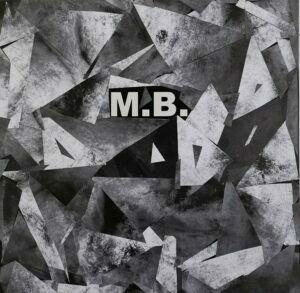 —At that time, I was listening to the so-called “after punk” and “cold wave” artists because I was drawn to the aseptic and computerized atmospheres, which formed a contrast to the deployment of visceral energy by traditional punk and the cerebral technicality of the conventional new wave. In fact, bands like The Residents, Tuxedomoon, Pere Ubu, MX-80 Sound, Thomas Leer, just to name a few, were part of my transition period in my personal tastes, before landing on the catastrophic shores of industrial music. of the various TG, Nocturnal Emissions, Cabaret Voltaire, Clock DVA, and others. What prompted me to undertake a career as a music journalist was the desire to transpose on the printed page my deep emotions and my hidden weightings that arose in my being after listening to those types of music.
—At that time, I was listening to the so-called “after punk” and “cold wave” artists because I was drawn to the aseptic and computerized atmospheres, which formed a contrast to the deployment of visceral energy by traditional punk and the cerebral technicality of the conventional new wave. In fact, bands like The Residents, Tuxedomoon, Pere Ubu, MX-80 Sound, Thomas Leer, just to name a few, were part of my transition period in my personal tastes, before landing on the catastrophic shores of industrial music. of the various TG, Nocturnal Emissions, Cabaret Voltaire, Clock DVA, and others. What prompted me to undertake a career as a music journalist was the desire to transpose on the printed page my deep emotions and my hidden weightings that arose in my being after listening to those types of music.
—You said in an interview that after listening to Zeit by Tangerine Dream you started you career. What impressed you of that album? You were a fan of Cluster too, weren’t you?
—Let’s say that Zeit opened new horizons to me, but not so much having listened to it when it was published in 1972, but rather in having “assimilated” it a decade later, because only then did the ‘germ’ develop in me of experimentation. In fact, its oppressive atmospheres and its psychic-astral modulations have been a powerful stimulus for my experimental-electronic development.
I too listened to the Kluster (even before becoming Cluster), but unfortunately, I discovered them late and therefore I have not fully assimilated their sub-atomic concretism. But I benefited from the friendship of Conrad Schnitzler and this contributed to my essentiality of the synthetic sound.
—Along your career you have defined your music as “psycho-neurotic sound”, “physiological disinfestation”, “a cosmic trip into the human psyche” and “feelings in a wall of sound”. How would you describe it now? How do you think your music manage to affect the psyche?
—It is obvious that over time there has been a certain evolution, even in the compositional vein, so that the various terminologies have followed one another in a parallel way. Currently I cannot find a suitable description, perhaps because my evolution has reached such a growth and completeness that definitions are no longer needed, but rather the emotions they arouse, always stimulated by the mind, which also includes the psyche of the individual.
—With you first alias Sacher-Pelz, you made a kind of musique concrète and you confessed to have been listening to Pierre Schaeffer before but were not thinking on that when you recorded your music. Was this the right style for a non-musician as you were at that moment?
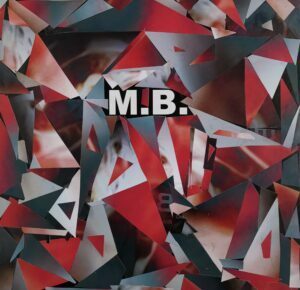 —I think so because from the beginning I have always let myself be guided more by instinct than by inspiration, and this explains the reason why the concrete music I created could not be associated with the academic and traditional concrete music of Schaeffer and others.
—I think so because from the beginning I have always let myself be guided more by instinct than by inspiration, and this explains the reason why the concrete music I created could not be associated with the academic and traditional concrete music of Schaeffer and others.
—During the first years of your musical career, you were quite isolated from the rest of the “scene”. Did you want to keep away from influences?
—The influences of others do not scare me, so my state of “voluntary isolation” was mostly dictated by the awareness that I could create something absolutely personalized, even unique in its kind and being alone with oneself can contribute significantly to achieve this.
—”Using monotony and dullness in a retrograde fashion to shape his sounds, an effect of negative hypnotism was achieved”. These words are from a quite positive review of your work. Do you think that monotony was a key part of your first work?
—I do not remember this review that to read it now seems a bit abstruse to my conception of experimental musicality, however to your question I answer that we must not confuse monotony with minimalism, as while the first attitude, in the long run , can bore the listener, whilst minimalism has the power to renew itself with each listening and even after many ‘ear perceptions’ (as I define them) it always has something new that never tires.
—Your music was a kind of decomposition, a defragmentation of usual music into several atoms of unusual non-music, according to you. How can you go from music to non-music? After all the barriers that has been destroyed, what would you define as non-music?
—The definition of non-music is not something absolute, but relative, because it depends on the mood of the moment in which it is composed and on the unpredictable result that will derive from it. The speech is quite complex, and I think that there is no definitive definition of non-music, but only a flood of fragmentary interpretations, so I am unable to add anything else.
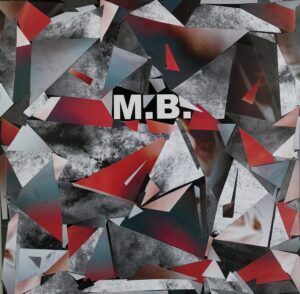 —According to Discogs you released 13 tapes in 1980. It was the year you started releasing music under your own name and you got a Korg and drum machines. Did you want to try all the possibilities of the new equipment? Any special event in your life that help you having so much time for music?
—According to Discogs you released 13 tapes in 1980. It was the year you started releasing music under your own name and you got a Korg and drum machines. Did you want to try all the possibilities of the new equipment? Any special event in your life that help you having so much time for music?
—The year 1980 was a milestone in the development of my decomposition technique and the continuous search for new sounds pushed me to set out on the tracks of synthetic and depersonalized sound in order to instil in it its own visceral emotion. There are no special events in life, but my existence is based on the specialty of events …
—During these years you were in touch with Monte Cazzazza, Genesis P-Orridge, Conrad Schnitzler, Nigel Ayers and Philippe Fichot. how was your correspondence with such characters? Did you exchange methods of working?
—They were only contacts at an amateur level, in the sense that we exchanged already “finished” products, such as cassettes and vinyls. That’s all. I remember that the most ‘generous’ one was Conrad who sent me his entire collection of vinyl works, and that was a really exciting event.
—About your album Technology, a critic wrote that it was “a highly ambivalent neurotic-neurotronic work on one hand it eradicates bad moods… but on the other hand it also annihilates all happiness. You have related your music to neurotic states. What´s the relation according to you?
—My music collects the immediacy of psychological frustration and merges it with the desire to react strongly to this situation in order not to be overwhelmed by neuronal annihilation, thus keeping the creative marrow intact.
—You have done a few soundtracks: Mörder Unter Uns was the soundtrack for a movie by Paul Hurst, exploring human tragedy. You also did some music inspired in the Clockwork orange soundtrack too. Did making music for images changed your approach to music? Your way of doing it?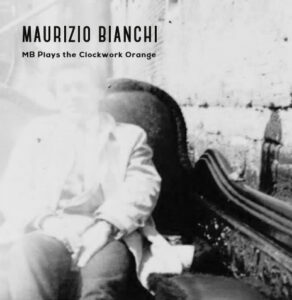
—In reality that movie remained only at an embryonic level and was never made, while the defragmentation of the soundtrack of A Clockwork Orange was just a playful approach. However, soon a film of mine will be released with images and a soundtrack composed by me, it is called MLIFB. Beyond this, my way of composing music for images has absolutely not changed my desire to experiment, on the contrary it has amplified it even more in the sense that using the “direct take”, therefore music composed directly together with the images, has highlighted even more the immediacy and spontaneity of my compositional discourse.
—Armaghedon was supposed to be a film done by you too, right? What happened to the movie?
—The film was released in 2015 for Ozky-e sounds, and is available directly from me in private artisanal form on DVDR. I obviously composed only the soundtrack and a good part of the images, especially the abstract ones.
—According to you, Armaghedon is about the herald of a new era of peace and serenity for all humanity freed from its death sentence. Is death the ultimate liberation for you?
—I am not afraid of death, because according to my spiritual conception, which has a solid foundation based on the Holy Word of God, whoever is sleeping in death is actually alive in the memory of God, waiting to be awakened to eternal life on a paradise earth.
—Some reviews compared this album to recently late Klaus Schulze’s work, were you interested in his music?
—I followed him as a kid, at the beginning of his career, at the time of Irrlicht and Cyborg so to speak, then his music had softened a little, losing its initial roughness. However, I appreciate him as a valid experimental electronic music artist.
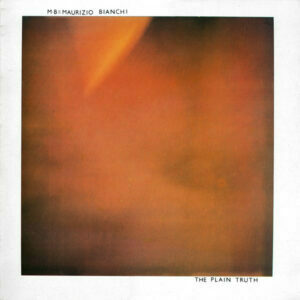 —With The Plain Truth, you wanted to insert your personal discovery of existential truth and spiritual purity. How did becoming a Jehovah witness changed your approach to music?
—With The Plain Truth, you wanted to insert your personal discovery of existential truth and spiritual purity. How did becoming a Jehovah witness changed your approach to music?
—He gave me a boost of optimism and the will to discover the real purpose of life. So also, my approach to music has been enriched with new elements that are more meditative and rich in spirituality. All of this has helped me to strengthen my resolve in the search for purer and more creative neuro-electronic sounds.
—From your first company Marquis Records to your numerous self released albums, you have released a lot of your material on your own, especially on the first days. You also had some bad experiences with labels, but lately you have been releasing a lot of work with small record companies. Do you prefer to work now with them and not to worry about distribution and other stuffs?
—Over the past 25 years I have preferred to rely completely on external private labels so as to simplify the administrative part and devote myself completely to the executive aspect in the sense of producing music, the texts that accompany my products and the visual part that I care a lot about.
—In a lot of interviews, you make references to your echo machine. What has been the role played by this instrument in your music?
—I can affirm that during the so-called period of “bionic music”, from Endometrium onwards it was an essential tool for the development of a more rarefied and dense sound, which brought me to the decomposing peak reached with “Armageddon” .
—How was your life from 1984 to 1997? Did you miss recording music?
—Everything was explained in a very poetic way in my preface to Colori, published in 1997. What can I add now? That the factor of recording new music did not fail me because in that 13-year period my mind was composing “music” within my psyche that was finding a certain balance and harmonic symmetry, an index of existential maturity.
—How did you get into a “more intimate and careful approach in music”? Due to age, change in musical tastes?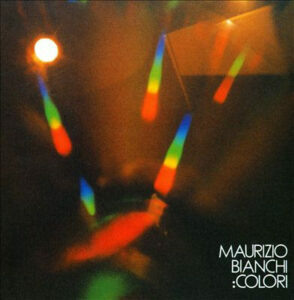
—This ties in a little to the previous question. Those precious 13 years of spiritual experience, combined with the following years to date, have made me a more meditative and reflective person and therefore a completely renewed vision of my artistic orientation has arisen.
—Do you think that the music of your come back has any relation with New Age as it was sometimes labelled?
—Not at all! It is just a definition coined by uninformed people. If we really want to find a term at all costs, we can use ‘light-ambient’.
—You coined the term “anarchophonic”. What did it mean to you?
—It means to wander freely, without necessarily being tied to a predefined sound scheme or to an indicated musical current.
—What was the idea behind the Colors serie?
—Strive to excite with the color of the sound, where previously only modulatory black and white existed.
—In “Antarctic Mosaic”, you used classical music. Would you like to make a more classical/symphonic work? How do you imagine a symphony made by you?
—I wouldn’t mind, even if this is outside my experimental path, but I can’t imagine how it could be.
—In your long career you have developed a lot of concepts, and I would like to make a stop in one on the latest, Mikromusicha. Microtonalism has existed for a quite long time, especially in non-occidental cultures. Were you influenced or interested in traditional music from outside of Europe?
—I have never been interested in this, perhaps because the traditional concept of microtonalism is linked to schemes conceived for academic classicism, while mine ranges freely without borders.
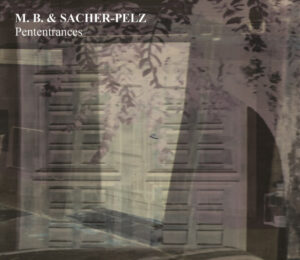 —In the last decades you have made a lot of collaborations. How is the process? Do you contact musicians that you like or are they the ones who come to you? Is it easy for you to work with other people?
—In the last decades you have made a lot of collaborations. How is the process? Do you contact musicians that you like or are they the ones who come to you? Is it easy for you to work with other people?
—It simply works like this: usually I am contacted by the artist who makes me the proposal, then I send him my pieces that act as a guideline for the collaboration, on which the artist inserts his sound interventions. The thing is of an unprecedented simplicity!
—Lately, you have been using again your first alias, simulating a collaboration with you present self. Do you consider Sacher-Pelz a way of working?
—It was a bit like an experiment within an experiment, because collaborating with myself has made me even more aware of the improvements I can make to my limitations.
—What can you please tell us about Vértice, your project with Juan Manuel Cidrón and Saverio Evangelista? Being a follower of both artists, I am quite interested about this.
—I have known Saverio since 1981, and after a very long period in which we lost contact, we met again in the early 2000s, due to circumstances that I do not remember, which however allowed us to collaborate on a couple of productions of minimalist music. As Saverio was in contact with Juan Manuel, he proposed me to do a three-way collaboration, and I gladly accepted, and so the Vértice project was realized.
—What are your projects for the future?
—In addition to the film I mentioned earlier, I intend to produce albums with some of my collages, of which I am attaching the photos, for the delight of all fans of abstract-expressionist visual art. While as far as music is concerned, a very peculiar work is planned which includes the use of my voice, entitled “NEVER EXISTED BEFORE CONSEQUENTLY IT WILL NEVER EXIST AFTER”, in collaboration with … Nisi Quieris!



